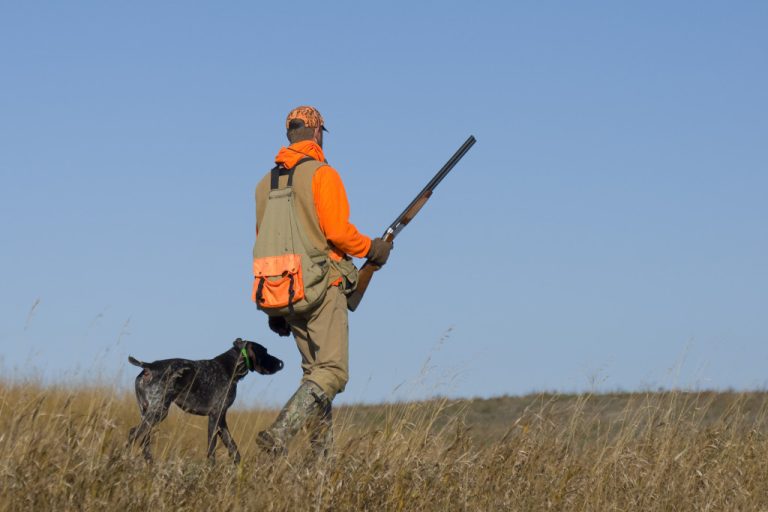- Know the hunting seasons and regulations to ensure a successful and lawful hunt.
- Get the appropriate gear and equipment for the type of game you’re hunting.
- Understand the animals you’re hunting to increase your chances of success.
- Follow safety measures and wear orange clothing during deer season to be visible to other hunters.
- Respect the environment and the animals you’re hunting by following regulations and ethics.
Hunting for your own meat can be a fun and rewarding experience that provides an authentic farm-to-table dining experience. Starting this new hobby can be daunting for beginners, but with some preparation and knowledge, it can be a satisfying and fulfilling way to source your own food. This blog post will provide tips and tricks for those new to hunting and looking to embark on this journey.
1. Know Your Seasons and Regulations
Before hitting the hunting grounds, make sure you know when the hunting season starts and ends, and be aware of what animals can be hunted and the regulations on bag limits and hunting methods. Different states and regions may have different hunting seasons and regulations, so it’s important to do your research beforehand. You can find this information with your local hunting authorities or online resources.
Many states require you to have a hunting license, so make sure to get one before going out. Ask experienced hunters for advice and familiarize yourself with the rules and regulations of the area.
2. Get Proper Gear and Equipment
Hunting requires certain gear and equipment to ensure a successful and safe hunt. Comfortable and appropriate clothing and footwear are essential for a pleasant hunting experience. Ensure you have the right tools and equipment, including the following:
a. Hunting weapon
When it comes to hunting, your weapon can make or break your chances of success. Choose a weapon that suits your skill level and the game you’re hunting. For example, a hunting rifle is best for large game such as deer and elk, whereas a bow and arrow is suitable for smaller game like rabbits and squirrels. Make sure to use high-quality hunting arrows and rifles to ensure accuracy and safety.
b. Sighting device
A sighting device such as a scope or binoculars is essential for hunting, allowing you to locate and identify game from a distance. Ensure you have the correct magnification for the type of hunting you’re doing, as this can make a big difference to your success rate. A night vision scope may also be necessary if you’re hunting in low-light conditions.
c. Game calls
Game calls are an excellent tool for attracting game to your area. Different types of calls work better for different species, so it’s a good idea to research and practice before heading out. Some hunters even make their own calls using wood, bone, or metal materials.

d. Hunting knife
A good quality hunting knife is vital for any successful hunt. It is useful for skinning and cleaning game and can also be used to build shelters and make tools. Invest in a quality blade suitable for the type of game you’re hunting. Some knives even have built-in tools such as a gutting hook or saw.
3. Know Your Targets and Their Characteristics
Understanding the animals you’re hunting is crucial for success. Learn about the habits, behaviors, and physical characteristics of the animals you’re hunting to increase your chances of success. It’s also essential to correctly identify the target before shooting to avoid killing the wrong animal or endangering others. If in doubt, don’t shoot. This will help to ensure a safe and successful hunt.

4. Practice Safety Measures
Hunting can be a risky activity if not done safely. Before hunting, take a hunter safety course to learn about safe hunting practices, including firearm safety and proper handling. Wear orange clothing to be visible to others, especially during deer hunting season. Also, inform someone of your whereabouts and hunting plans for emergencies.
You should also familiarize yourself with the area you’ll be hunting in. It’s a good idea to scout out the land ahead of time and locate potential areas of activity. This way, you’ll better understand where to find game. If possible, hunt with a friend or experienced hunter to learn the ropes.
5. Respect the Environment and the Hunt
Hunting is not just about taking an animal’s life for food but also about respecting and preserving the environment. Always follow the rules and regulations to help sustain the environment and ensure wildlife conservation. Respect the animal you’re hunting by using all parts of the animal, and avoid wasting any meat.
Hunting can be a fun and exciting experience for those looking to source their own food. By following these tips for beginners, you can ensure a safe and successful hunt. Remember always to respect the environment, the animals you’re hunting, and the hunting regulations and ethics. With some preparation and knowledge, you can enjoy an authentic farm-to-table dining experience with your own hunted meat.












